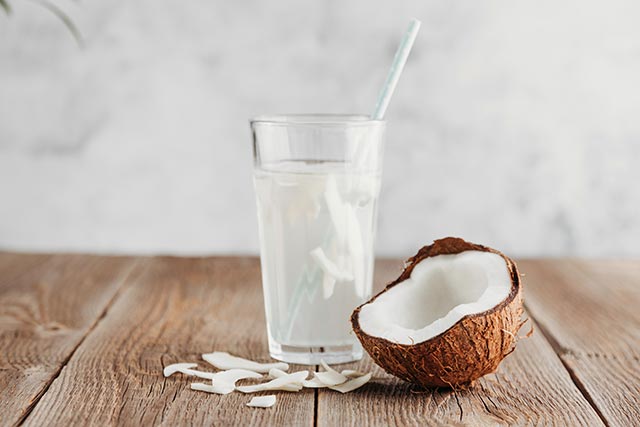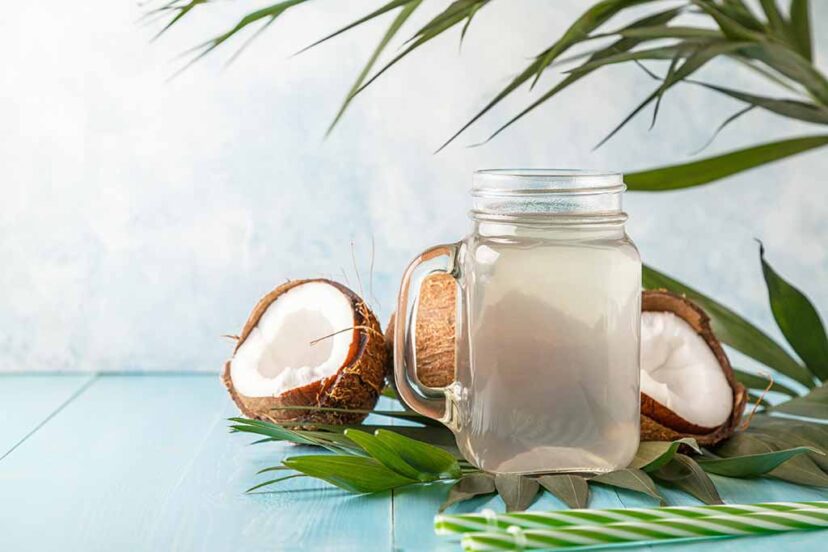Is Coconut Water Alkaline?
Introduction
Hey there, fellow health-conscious enthusiasts! If you’re like me, you’re probably always on the lookout for the latest wellness trends and nutritional insights. One topic that’s been gaining attention lately is whether coconut water deserves a spot in our list of alkaline-friendly beverages. Join me as we dive into the world of pH levels, coconut water composition, and the potential benefits it offers.
Understanding pH Levels and Alkalinity
Before we embark on this coconut water journey, let’s refresh our understanding of pH levels and alkalinity. The pH scale ranges from 0 to 14, with 7 being neutral. Anything below 7 is considered acidic, while values above 7 are alkaline. Maintaining a balanced pH level is crucial for optimal health, as it influences various bodily functions.
The Composition of Coconut Water
Coconut water, often dubbed “nature’s sports drink,” is a clear liquid found inside young, green coconuts. It’s naturally packed with electrolytes, vitamins, and minerals like potassium, magnesium, and calcium. But does its impressive nutritional profile translate to an alkaline nature?
Measuring the pH of Coconut Water
Intriguingly, the pH of coconut water can vary depending on factors like the age of the coconut and growing conditions. On average, coconut water falls within the slightly acidic to neutral range on the pH scale. But remember, pH is not the only consideration when assessing a food’s alkalinity impact in the body.
Benefits of Alkaline Foods and Beverages
Alkaline-rich diets are believed to counteract the effects of acidic foods, promoting bone health, reducing inflammation, and potentially even aiding weight management. While the body has its own mechanisms to regulate pH levels, incorporating alkaline foods can provide an extra boost.
Is Coconut Water Alkaline or Acidic?

Let’s address the coconut in the room: Is coconut water alkaline or acidic? While coconut water isn’t strongly alkaline, its nutrient content and hydrating properties can still contribute positively to your overall health. Don’t fret if it’s not a super-alkaline superstar; its benefits extend beyond pH.
In the ever-evolving world of health and wellness, the battle between various beverages for the title of the ultimate hydrator continues to captivate our attention. Among the contenders, coconut water and alkaline water have gained considerable popularity for their purported health benefits. Both are revered for their ability to quench thirst and deliver essential nutrients, but how do these two beverages compare when it comes to their nutritional profiles? Let’s dive into the nutrient-rich waters of coconut water and alkaline water to uncover the truth behind their claims.
Coconut Water: Nature’s Electrolyte Elixir
Coconut water, often referred to as “nature’s sports drink,” has become a staple in the wellness world, lauded for its impressive electrolyte content. It is the clear liquid found inside young green coconuts, and it has gained a reputation for its ability to replenish electrolytes lost through sweat and provide hydration in a refreshing and natural way.
Nutritional Highlights of Coconut Water:
- Electrolytes: Coconut water is a remarkable source of electrolytes, particularly potassium, which plays a crucial role in maintaining proper fluid balance, muscle function, and nerve transmission.
- Low in Calories: Compared to many commercial sports drinks and sodas, coconut water is relatively low in calories and contains no added sugars.
- Vitamins and Minerals: It contains essential vitamins and minerals like vitamin C, magnesium, and calcium, contributing to overall health and vitality.
- Natural Sugars: While it does contain natural sugars, the sugar content is significantly lower than that of many fruit juices and sweetened beverages.
Alkaline Water: Balancing Act or Hype?
Alkaline water, on the other hand, is characterized by its higher pH level, often ranging between 8 and 10, which is believed to counteract the acidity that can build up in the body due to a modern diet and lifestyle. Proponents of alkaline water argue that it can help maintain the body’s natural pH balance and potentially offer various health benefits.
Nutritional Highlights of Alkaline Water:
- Hydration: Like plain water, alkaline water is an effective way to stay hydrated, helping to maintain bodily functions and support overall well-being.
- Potential Antioxidants: Some alkaline waters claim to offer antioxidant properties, which can help combat oxidative stress and potentially reduce the risk of chronic diseases.
- Mineral Content: Some brands of alkaline water may contain trace minerals like calcium, magnesium, and potassium, which contribute to overall mineral intake.
Comparing the Two:
When comparing coconut water and alkaline water, it’s essential to consider the specific nutrients each offers. Coconut water stands out for its rich electrolyte content, making it an excellent choice for hydration, especially after exercise or during hot weather. Its low-calorie nature and natural sugar content make it an attractive alternative to sugary beverages.
Alkaline water, on the other hand, can be viewed as a way to support the body’s acid-base balance, although scientific consensus on the benefits of alkaline water remains somewhat inconclusive. The potential antioxidant properties of alkaline water can be seen as an added benefit, but the overall nutritional impact might not be as pronounced as that of coconut water.
The Verdict: Choose Wisely
Ultimately, the choice between coconut water and alkaline water depends on your specific needs and preferences. If you’re looking for a natural source of electrolytes and hydration, coconut water is a fantastic option. On the other hand, if you’re interested in exploring the potential benefits of maintaining an alkaline pH in your body, alkaline water could be worth a try. As with any dietary choice, moderation and variety are key for a well-rounded nutritional intake.
Remember that while these beverages can contribute to your overall hydration strategy, they should be a part of a broader, balanced diet rich in fruits, vegetables, whole grains, lean proteins, and plenty of plain water. Always consult with a healthcare professional before making significant changes to your diet or hydration routine.
Factors Affecting Coconut Water’s pH
Several factors influence coconut water’s pH, including the coconut’s maturity, processing methods, and exposure to air. As coconuts mature, their water becomes less acidic. But regardless of its pH, coconut water’s rich electrolyte content makes it an excellent choice for post-workout rehydration.
The Alkaline Diet and Coconut Water

If you’re a fan of the alkaline diet, you might be wondering if coconut water aligns with its principles. While it might not be the most alkaline beverage out there, it can still complement your diet by providing essential nutrients in a hydrating package.
Hydration and Electrolyte Balance
One of coconut water’s standout features is its impressive electrolyte content. It’s a natural source of potassium, which plays a crucial role in maintaining fluid balance and proper muscle function. So, even if it’s not the highest on the pH scale, it’s a win for staying hydrated.
Choosing the Right Coconut Water
When selecting coconut water, opt for brands that offer 100% pure and natural options without added sugars or artificial flavors. Fresh coconut water from young coconuts tends to have a milder taste and might even be slightly sweeter.
Incorporating Coconut Water into Your Diet
While it might not be the most alkaline beverage, coconut water can still be a refreshing addition to your daily routine. Use it as a base for smoothies, mix it into your morning oats, or enjoy it as a post-exercise hydrator.
Refreshing Alkaline Coconut Water Recipes
Why not get creative in the kitchen? Try blending coconut water with alkaline-rich ingredients like leafy greens, cucumber, and lemon to create a revitalizing and nutrient-packed green drink.
Potential Drawbacks and Considerations
While coconut water has an array of benefits, it’s not suitable for everyone. Individuals with certain medical conditions or those on specific diets might need to moderate their coconut water intake. Always consult a healthcare professional if you’re unsure.
Conclusion
In the grand spectrum of alkalinity, coconut water might not be the poster child, but it certainly has a place in your healthy lifestyle toolkit. Its hydrating properties, electrolyte content, and array of nutrients make it a valuable addition, even if it’s not entirely alkaline. Remember, a balanced diet and overall wellness are about the bigger picture.
FAQs About Coconut Water and Alkalinity
Q1: Is coconut water better than sports drinks for hydration? A: Yes, coconut water’s natural electrolyte content can make it a healthier alternative to many sports drinks.
Q2: Can coconut water help with acid reflux? A: Some individuals find relief from acid reflux by consuming coconut water in moderation.
Q3: Can I drink coconut water every day? A: Yes, as long as you don’t overconsume, drinking coconut water daily can be part of a balanced diet.
Q4: Does the brand of coconut water affect its pH? A: Yes, processing methods and additives in different brands can influence the pH of coconut water.
Q5: Is coconut water safe for individuals with diabetes? A: While coconut water has natural sugars, it’s generally considered safe for diabetics when consumed in moderation. However, it’s best to consult a doctor.
So there you have it, folks! Coconut water might not be the ultimate alkaline elixir, but its benefits extend far beyond its pH level. Enjoy it as part of your well-rounded wellness routine and relish in its refreshing goodness.




